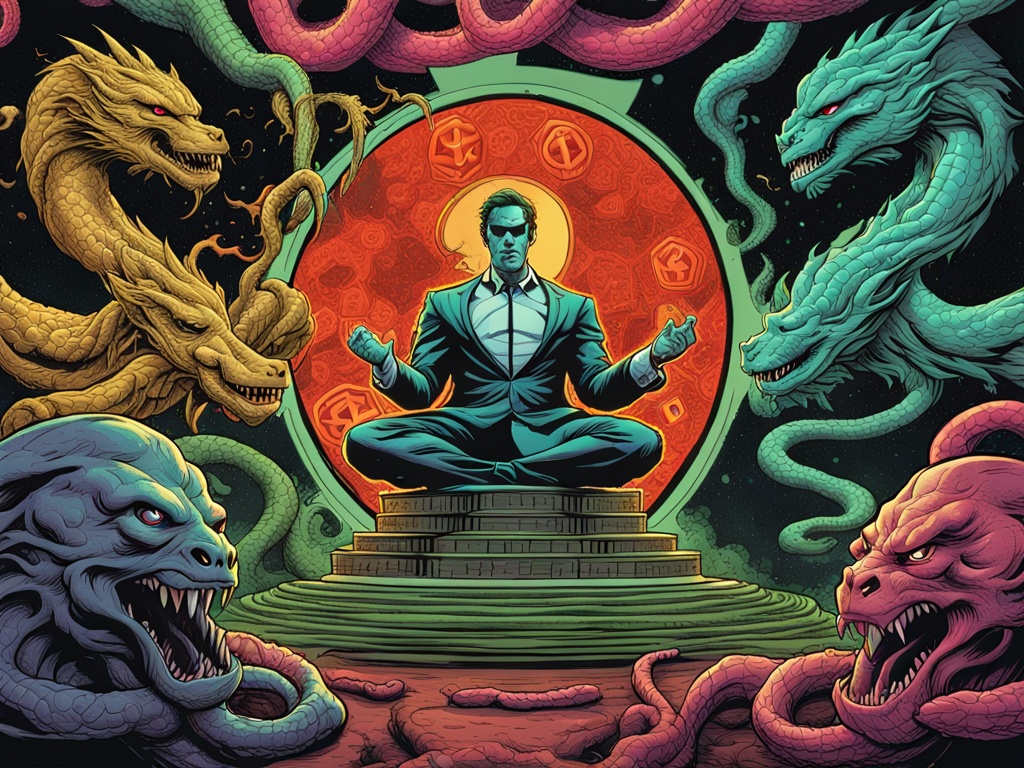Legal Outcomes of Hydra’s Operations and Darknet Market Trends 📉
The crackdown on the notorious darknet marketplace, Hydra, has culminated in significant legal consequences and revelations about the ongoing trends in illicit online transactions. Russian state sources report that Stanislav Moiseev, the mastermind behind Hydra, has received a life sentence, leading a group of associates who will also serve time for their roles in the platform’s illegal activities. This year, the significance of these events in the broader context of cryptocurrency regulation and darknet activities cannot be understated.
The Scope of Hydra’s Operations 🌐
Hydra, operational from 2015 until its closure in 2022, was a dominant force in the darknet ecosystem, claiming approximately 80% of all cryptocurrency transactions related to illicit goods in 2021. The platform generated an astonishing $5.2 billion in cryptocurrency revenues over its tenure, according to the U.S. Justice Department. This substantial figure underscores the scale of its operations and the traffic it attracted from users seeking to purchase restricted items.
Many of Hydra’s activities revolved around the distribution of illegal goods, including:
- Stolen credit card details
- Counterfeit currencies
- Fake identity documents
Due to these illicit transactions, Hydra has been referred to as the “Amazon of the darknet,” maximizing its reach and profitability by exploiting unregulated online markets.
Hydra’s Downfall and Investigations 🔍
The downfall of Hydra occurred in April 2022 when German law enforcement seized the platform’s servers and Bitcoin reserves, sealing its fate. In the raid, authorities also confiscated a staggering amount of narcotics and psychotropic substances, revealing the depth of Hydra’s involvement in drug trafficking.
Before its demise, Hydra boasted an impressive user base of about 17 million customers and 19,000 vendor accounts, which illustrates the extensive network that perpetuated its operations. Additionally, the Ministry of Internal Affairs in Russia had been investigating these criminal activities since 2016, indicating prolonged scrutiny of the marketplace’s illegal dealings.
Judicial Actions and Sentences ⚖️
Alongside Moiseev, several individuals received sentences for their involvement in Hydra’s illicit activities. Notable names include Alexander Chirkov, Andrei Trunov, and Evgeny Andreev, among others. Their sentences, while delivered, remain open to appeal, leaving a hanging narrative within the judicial proceedings against darknet affiliates.
The Resilience of Darknet Marketplaces 💪
Despite the shutdown of Hydra, darknet marketplaces continue to flourish. A report by Chainalysis this year indicates that the revenues generated from darknet activities exceeded $1.7 billion in 2023, a figure that eclipses revenues recorded in 2022. This points to the resilience and adaptability of illicit online markets, which manage to persist despite law enforcement efforts to disrupt their operations.
Legal Developments in Cryptocurrency Regulation 🏛️
This year also witnessed a pivotal legal decision concerning cryptocurrency privacy tools. A significant appellate court in the United States recently overturned sanctions imposed on Tornado Cash, a crypto mixer that anonymizes transaction sources. The Fifth Circuit Court of Appeals ruled that the Office of Foreign Assets Control (OFAC) had overstepped its jurisdiction by sanctioning the immutable smart contracts of Tornado Cash, asserting that such contracts do not constitute “property” under the existing legal framework.
The court emphasized that these contracts operate autonomously and cannot be centrally controlled or owned, thereby exempting them from sanctions under the International Emergency Economic Powers Act (IEEPA). The judges noted, “We hold that Tornado Cash’s immutable smart contracts are not the ‘property’ of a foreign national or entity,” thus signaling a potential shift in how cryptocurrency tools are viewed under U.S. law.
Hot Take: Future Implications on Regulation and the Darknet 🚀
The outcomes surrounding Hydra, combined with the legal precedents set regarding tools like Tornado Cash, open up discussions about the future landscape of cryptocurrency regulation and law enforcement’s approach to tackling the darknet. The resiliency of these markets underlines the necessity for ongoing adaptations in regulatory frameworks, as technology and illicit operations evolve. As the year progresses, stakeholders will closely monitor how these trends influence policy-making and the enforcement of law concerning digital currencies and online transactions.





 By
By
 By
By
 By
By
 By
By

 By
By